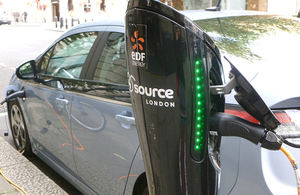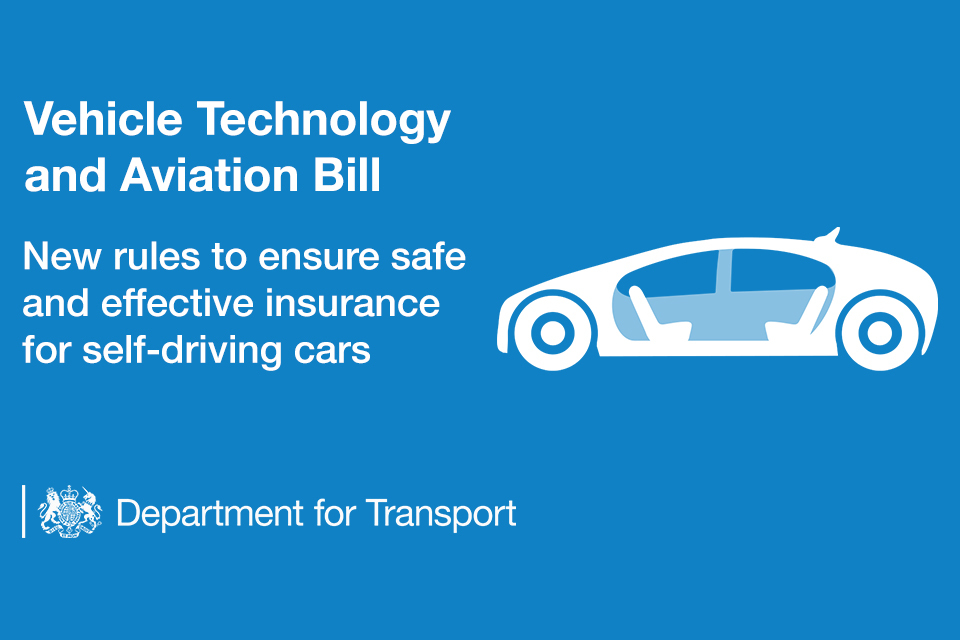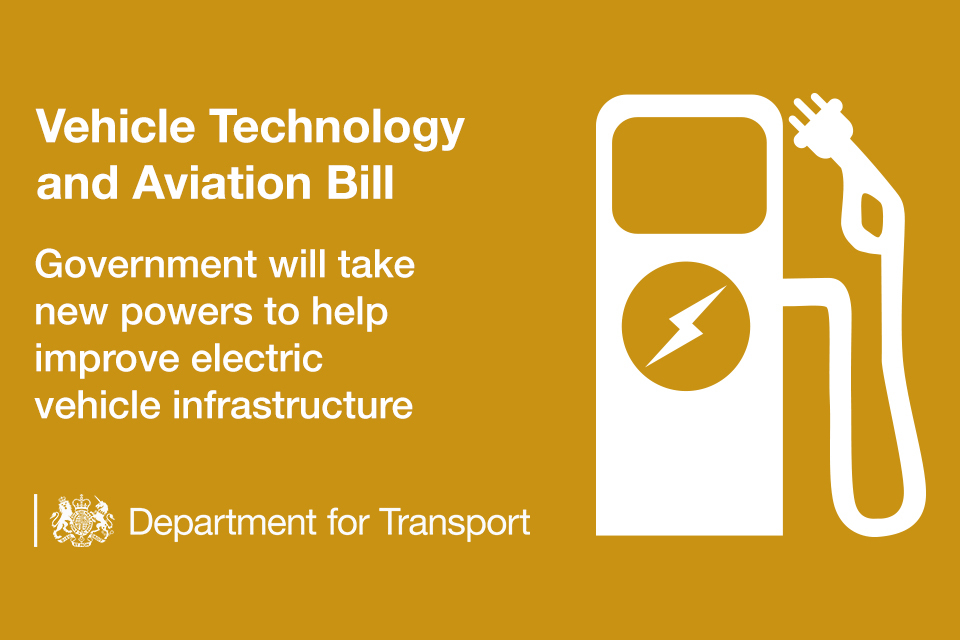New measures set out autonomous vehicle insurance and electric vehicle infrastructure
Self-driving car insurance and electric vehicle charge point measures introduced in Vehicle Technology and Aviation Bill.

New measures set out autonomous vehicle insurance and electric car infrastructure.
New insurance rules for self-driving cars and measures to improve provision of electric vehicle charge points will be introduced today (22 February 2017), as part of the Vehicle Technology and Aviation Bill.
It is hoped these measures will help the UK to become a world leader in these technologies by breaking down some of the barriers that could limit companies from testing them here.

Driverless cars infographic.
Measures around insurance for self-driving cars will ensure better protection - a single insurance product for automated vehicles will now be able to cover both the motorist when they are driving, as well as the car when it is in automated mode. This will mean innocent victims involved in a collision with an automated vehicle will have quick and easy access to compensation.
Self-driving vehicles will allow the driver to hand full control and responsibility to the vehicle when technologies are turned on.
The measures follow a consultation by the Department for Transport on the issue of insurance for self-driving cars that closed in September 2016. The Secretary of State will be given the power to classify which vehicles are ‘automated’ and subject to the new insurance requirement.
Chris Grayling, the Transport Secretary, said:
Automated vehicles have the potential to transform our roads in the future and make them even safer and easier to use, as well as promising new mobility for those who cannot drive.
But we must ensure the public is protected in the event of an incident and today we are introducing the framework to allow insurance for these new technologies.

Electric cars infrastructure infographic.
David Williams, Head of Underwriting, at AXA UK, said:
This is a positive step forward that provides clarity to insurers to ensure we design our products appropriately. It keeps protection of the general public at its heart which we hope will encourage early adoption of some really impressive technology.
The vast majority of accidents are caused by human error and we see automated vehicles having a massive impact, reducing the number and severity of accidents. As well as making our roads safer, insurance premiums are based on the cost of claims and therefore we expect substantially reduced premiums to follow.
Other measures set out in the Bill will mean easier access to infrastructure for electric vehicles. They could also ensure the right infrastructure is in place for the growing market for electric vehicles.
Motorway services and large fuel retailers could be made to provide electric charge points and hydrogen refuelling stations under planned new laws.
The measures could also make sure data about the location and availability of charging stations is openly available, and make it easier to use the different networks which are available. They follow a public consultation on measures to improve charging infrastructure.
John Hayes, Minister of State for Transport said:
If we are to accelerate the use of electric vehicles we must take action now and be ready to take more action later. I recognise that to encourage more drivers to go electric, the infrastructure needs to become even more widespread than the 11,000 charging points already in place and more straightforward. We are determined to do all we can to make electric vehicles work for everyone and these new laws will help make this a reality.
The bill will also introduce a stronger legal framework for diversionary courses – also known as speed awareness courses. These are police-run educational courses for those charged with minor motoring offences, as a voluntary alternative to a fixed penalty fine and points on their licence. The new statutory regime will ensure there is greater local accountability and financial transparency over their operation, and allow for a cap on the fees charged.
News desk enquiries
Media enquiries 0300 7777 878
Switchboard 0300 330 3000